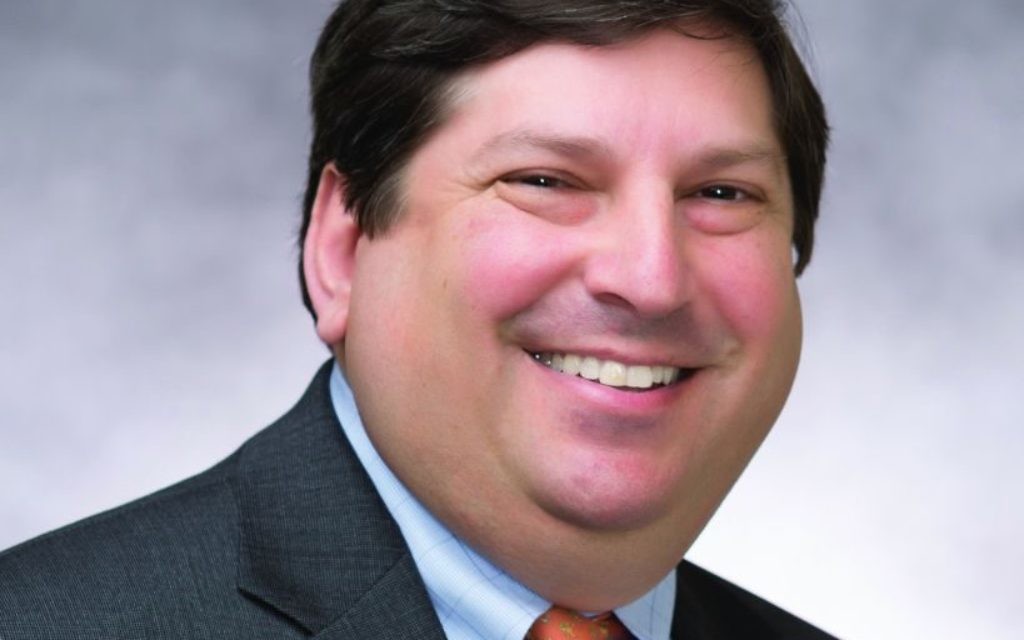Other Banks’ Failures Lift Ameris Bank Into Atlanta
Ameris Market President Michael Tesler cautiously optimistic about industry’s stability after 2008
Atlanta native Michael Tesler is the Atlanta market president of Ameris Bank, a midsize regional bank with annual revenue of $295 million that serves customers in Georgia, Alabama, Florida, South Carolina and Tennessee.
Ameris Bank was founded in 1971 and is based in Moultrie. After the financial crisis of 2008, Ameris acquired several small regional banks in the Southeast, helping it become the third-largest bank with headquarters in Georgia.
Tesler, who attended the Solomon Schechter School (now the Epstein School), has been with Ameris since 2012.
Get The AJT Newsletter by email and never miss our top stories Free Sign Up
AJT: Ameris is a regional bank, so how do you compete with some of the larger banks around the country?
Tesler: Our strategic advantage is that we act like a community bank, but we have the wherewithal to compete with larger banks. We have a lot of the products and services that a larger bank has. I think where we really strive to be is someone that can treat every customer like a private banking customer but with expertise from all different disciplines of banking.
AJT: How much more would you like to expand as a bank?
Tesler: I think our goal is to grow within our footprint and possibly within a few others, but our goal here is to develop a more robust banking operation in Atlanta. We’ve been here almost six years, and we got here by taking over some failed banks during the downturn. We kind of consolidated that into an operation that allowed us to create a springboard to be a commercial bank.
AJT: What do you think the future holds for bank branches?
Tesler: From the branch side, I think the challenge is always going to be technology is going to make branches less and less appealing. However, there is a segment of the community that needs those branches, so I don’t see the death of the branch being that imminent. I also don’t see the need for a bank to come in and expand its branch network to where 20 or 30 years down the road it would become obsolete.
AJT: How has the banking industry changed since the big financial crisis in 2008?
Tesler: For the most part, it’s more stable. Hopefully everyone learned a valuable lesson about extending terms and structures on loans that didn’t quite fit. I don’t really see systemically the problems that were in the banking industry before and also just in the general economy. Obviously now in Atlanta you can look out any window and see cranes everywhere, but there’s a lot of growth here. We’re cautiously optimistic that things are going to continue, and even if we have a downturn, the effects of that won’t be anywhere near where they were back then.
AJT: If there is anything we should worry about, what is it?
Tesler: The student loan situation is really concerning because I don’t know at what point that will start affecting people’s purchasing habits. There’s a lot of people buying homes again, but some of it is Wall Street and private-equity-type money. So it may be inflating some of the pricing on homes, and I don’t know what’s going to happen if they can’t get the returns that they would like to.
AJT: The Equifax data breach is still fresh on everyone’s mind. Do you have any tips for online security?
Tesler: I think everybody is a little too loose with their information. We’re always willing to give out our e-mails, our birth dates on social media. There’s a lot of things that people can use to piece together your information. People have their dog’s names on Facebook and then they turn around and use that as their passwords. We just remind people that they need to keep changing their passwords. Overall the thing we’ve been trying to let people know is that the first line of defense is you.





comments